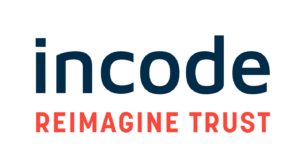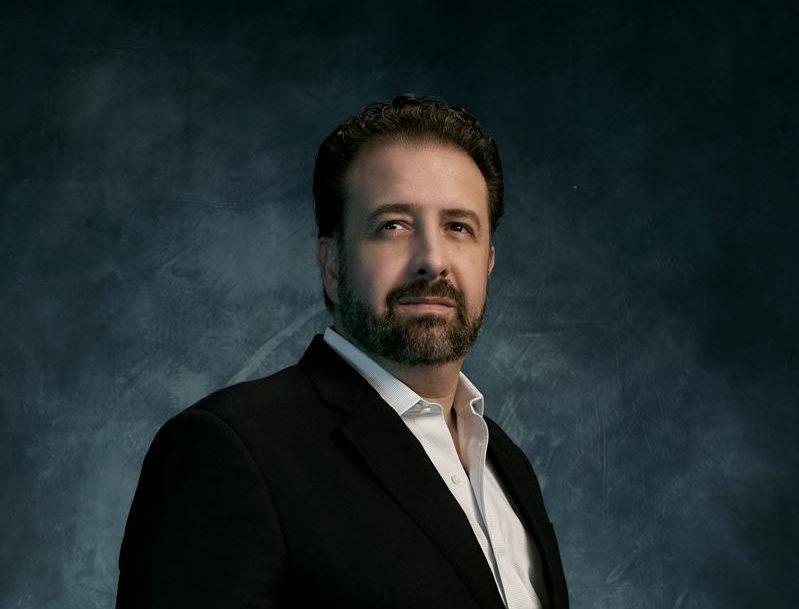Incode is a digital identity company based in San Francisco that builds secure, seamless identity access solutions. Our goal is to create trust in the digital world by reinventing the way people authenticate and verify their identities online. Our solution can be applied to a broad range of use cases, for instance, we can enable a user to open a bank account or check in to a hotel within a matter of seconds, instead of half an hour.
We have engineered a complete set of features including world-class facial recognition technology that is able to recognise when someone is sending a fake photo, video or wearing a mask. It can clean up a blurry ID document so it can be read and assessed. Ultimately, our mission is to create one identity everywhere, to speed up authentication in a secure and compliant way, while giving businesses the tools they need to provide a convenient, swift, and seamless way of processing payments and other data transactions.

How did you come up with the idea for the company and what makes Incode unique?
The idea for Incode originally stemmed from an app we first developed that would automatically share photos based on who appeared in the photo, based on facial recognition. The facial recognition technology that we used had to be extremely precise with exceptionally low false positives while preserving the privacy of every user.
We later realised that there was a much wider market for biometrics and that our in-house AI and recognition software had much more potential. So, we decided to pivot to what Incode is doing today. Our experience of dealing with bad quality photos and the privacy issues surrounding sharing images laid the foundations for our ethos around trust and for the need for superior technical capabilities.
What really sets Incode apart from other AI biometrics innovators is our vision of empowering a world of trust. Incode’s end-to-end identification platform, Omni, delivers the highest standard in security, user experience and regulation with a set of proprietary, machine learning, computer vision, anti-fraud and digital onboarding components.
More from Interviews
- A Chat with Dr. Stuart Grant, Founder and Principal Consultant at Archetype and Judge in the MedTech38 2025
- Interview With Raman Alsheuski, VP of Product at AIBY
- Meet Greg Squibbs, Founder of AI Agency Training Hub: StartYourAIAgency.com
- Meet Eamon and Arj, Co-Founders Of Tax Return Platform: Taxd
- Interactive Fun and Entertainment: Meet Jonny Powell, CEO of 501 Fun
- Meet Jaron Soh, Co-founder & CEO of LGBTQIA+ Mental Wellness App: Voda
- Meet Nathalie Morrison: The Founder Behind Astrea, the Fashion-Tech Brand Putting Lab-Grown Diamonds at the Heart of Luxury
- Meet Badr Ward, CEO And Founder Of Education Platform: Lamsa
How has the company evolved over the last couple of years?
We have grown an incredible amount recently – achieving unicorn status after our Series B funding round – because identity is being fundamentally reinvented, and businesses are recognising that. Within the next three to five years, the way we interact with each other, in terms of identity verification, and how we interact with computers, is going to be completely revolutionised.
Incode recognises that biometric capabilities will soon be embedded in everyday life, and our product research and development has been geared towards accelerating its adoption across a wide variety of industries. With one identity everywhere, Incode will be fulfilling its mission of creating trust by reinventing the way people authenticate and verify their identity online.
With our technology, banks can enable experiences like digital onboarding authentication without the hassle of inputting a password. It will be like going to an ATM and withdrawing money with your face. Our technology is highly impactful and can democratise access to services.
Using AI, Incode believes people themselves will be the only documentation needed to verify their identity. Users will only need to be onboarded once since their own biometrics will become their ticket to seamless experiences across all industries.
What can we hope to see from Incode in the future?
There are several industries where we have seen acceleration in their use of identity verification, which we expect Incode to play a role in. Online gambling and casinos are an example. The Covid-19 pandemic has helped to fast track the projected value of the global gambling market to over $94 billion USD over the next two years. As online casinos gain popularity, gambling regulations have become more stringent worldwide.
Due to the amount of cash passing through their systems, online casinos need to comply with stricter regulations and implement serious measures to prevent unscrupulous individuals from using them for identity theft, fraud, money laundering, and other financial crimes that leverage false identities.
In fact, the stringency of online casino gaming regulations is forcing operators to expand their compliance teams. Operators will need to invest more in AML (anti-money laundering) measures and implement KYC (know your customer) processes to verify the real identity of players, including age verification and personal details through a passport or driver’s license. At the same time, these identity verification processes must be scalable, easy to implement, protect user privacy and not impact the customer experience to lead to a loss of competitiveness.
The healthcare sector is also an industry that is likely to be impacted by identity verification soon. At Incode, we see this as an ideal industry target. Identity verification can be used in several ways within the healthcare sector. From identifying patients for appointments to helping diagnose patients, identity verification will soon be crucial in supporting and aiding the healthcare sector. It will also aid those who are working within the sector. The speed at which patients can be seen and verified will increase substantially. Health workers are typically always stretched thin and overworked. The ability to speed up admin processes will allow healthcare workers to focus on the work that matters.
The way Incode sees it, identity verification can impact all industries. With the way in which technology is developing. I’m of the opinion that identity verification will eventually affect all industries soon.



